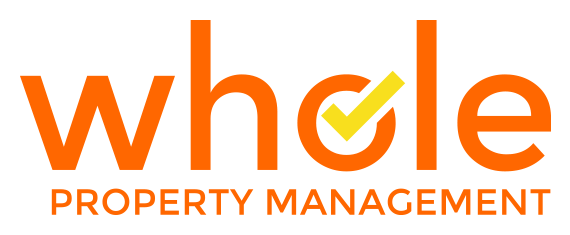What Maintenance Issues Are Emergencies and What Can Wait for Regular Business Hours?
Unlike many 9-5 day jobs, property managers might have to deal with emergencies at any time. A common issue that property managers can hear about from their tenants at any time are maintenance emergencies.
As a self-managing property manager, you can expect calls at whatever time of day or night. When tenants call you for help, they expect a timely response. However, not all requests require immediate response since they are not considered emergencies.
But, how should you handle an impromptu maintenance issue as a self-managing property manager? In this article, the team from Whole Property Management will advise you not only on how to handle maintenance requests, but which ones count as emergency situations.
What Can Be Categorized as a Maintenance Emergency Issue?
For starters, you need to be able to determine what constitutes a maintenance emergency. From a tenant’s perspective, an inconvenience could seem like an emergency. It is important to be able to differentiate an emergency from an inconvenience for your tenant.
Regular problems can wait until normal business hours to be resolved.
However, the following problems are emergencies and need to be handled immediately:
- Fire
- A broken lock or door that cannot be secured
- Flooding or water damage of any kind
- Frozen or broken pipes
- A gas leak
- A broken HVAC system
- A leaking roof
- Electrical brownouts
As per the list above, an emergency can be defined as an issue that has the potential to cause harm to the tenants, the neighbors, or the property. Any issue that can cause harm of any kind should be handled as an emergency.

Non-Emergency Maintenance Issues
A non-emergency maintenance issue would be one that doesn’t endanger the life of the tenant or doesn’t pose a threat to the property. Should such an issue be reported by the tenant, the property manager should still repair it, but can do so during regular business hours.
Some examples of non-emergency issues include:
- Malfunctioning of an appliance
- No hot water in the boiler
- Burnout of an electrical fixture
- No air conditioning in the summer
- Parking disputes with the neighbor
- Minor dripping from a faucet or showerhead
These will only cause slight discomfort for the tenant and can be repaired during normal business hours. However, be careful to listen to their concerns and try to solve tenant complaints.
Tips for Handling Emergency Maintenance Issues
Open Communication
When something isn’t going right in their rental unit, it is normal for tenants to want the issue resolved quickly. During such a time, they will want to get in touch with you, especially if you are a long-distance landlord.
Allowing open communication between landlord and tenant gives them the peace of mind that you care about their well being. When they call you, offer guidance about the issue, and tell them when you will respond to the matter.

As the landlord, you should always keep the tenant in the know. They should be aware of when the contractor will come to sort out the maintenance issue, what will need to be done, and how long it will take.
Emergency Services
There are some emergencies that are out of your control and you cannot fix for your tenants. In the case of issues such as fire, the tenant should first get in touch with the fire department before reaching out to you.
In light of these, you should give your tenants a list of the local emergency contacts. Be sure to provide your tenants with a plan so that they know how to react in case of any emergency.
Landlord and Tenant’s Rights and Responsibilities
While you want to make repairs in the shortest time possible, be aware of the rights and responsibilities of the tenant. The landlord is responsible for all repairs on the property since it is crucial that the property remains in a safe and habitable condition.
Furthermore, the tenant has the right to quiet enjoyment of their rental spaces. For non-emergency issues, be sure to have consent from the tenant to enter the premises.

Non-emergency issues include making upgrades and renovations to the property. The permission to enter should either be written consent or communicated via mail.
As a landlord, you are not responsible for damage to personal property. The renter should be aware of these terms and they should be expressly stated in the lease agreement.
Conclusion
Property maintenance is not as straightforward as other property needs. Even when you have a regular inspection schedule, you can expect calls in the middle of the night from the tenant requesting service. With the tips shared above, you can work around the issue with ease.
Property investment is very rewarding and can be so easy so long as you understand how to properly handle maintenance requests. Rely on the leading service provider in the region to help you manage your investment property! Whole Property Management is the #1 management company in the area.
From tenant screening to property maintenance to rent collection, we offer a wide range of customizable property services for our clients. Get in touch with us today to receive a free quote!
